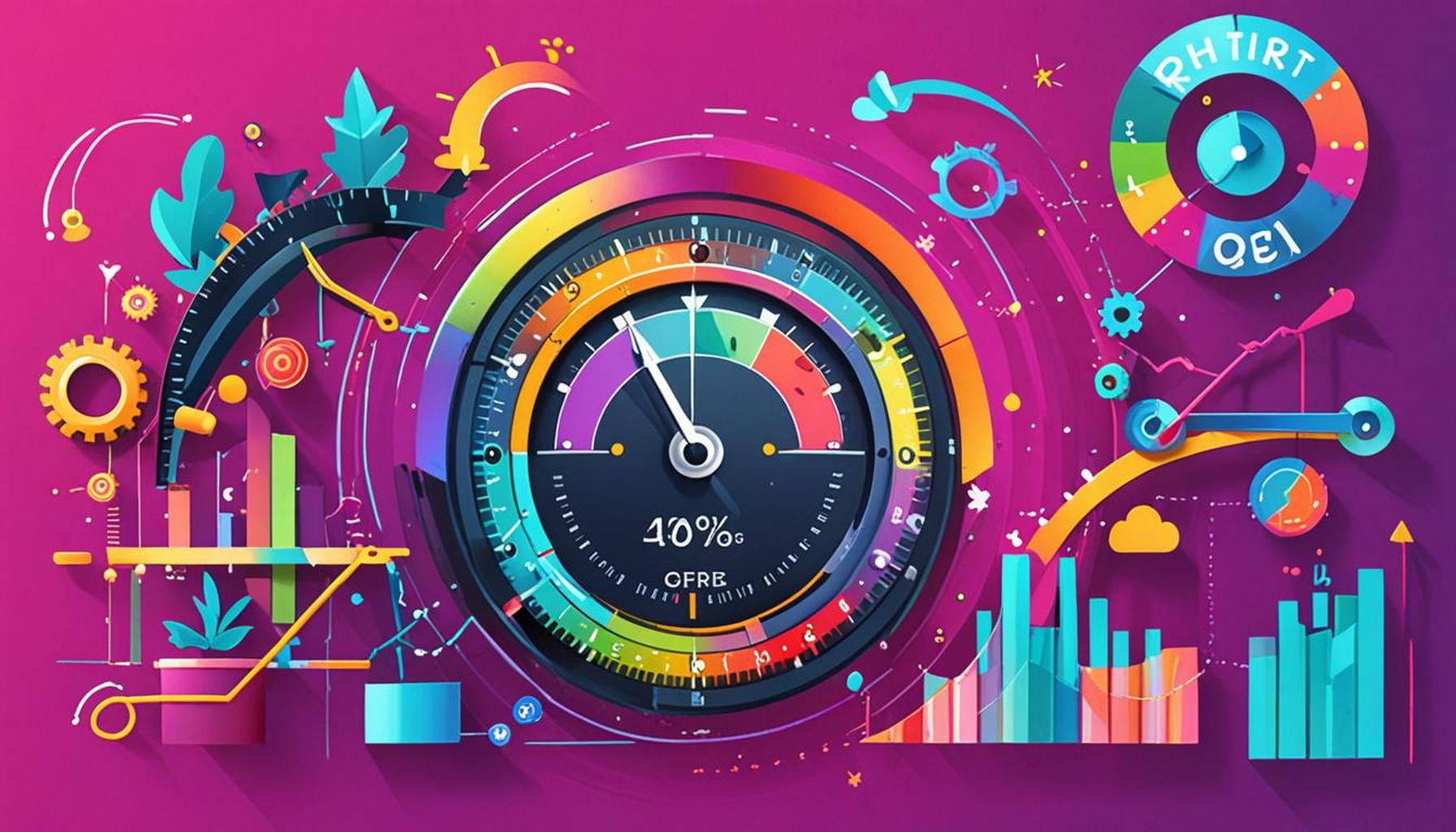The Importance of Personalization in Marketing Automation Campaigns

Understanding Personalization in Marketing
As technology continues to evolve, the marketing landscape is changing at a rapid pace. Consumers now interact with numerous brands daily, from social media ads to email newsletters, making it crucial for businesses to stand out in this crowded space. Achieving this can be accomplished through the power of personalization, an approach that tailors marketing efforts to meet the unique needs and preferences of each individual consumer.
At the heart of personalization is marketing automation, a technological solution that enables brands to create customized campaigns effectively. This process involves utilizing customer data—from browsing history to purchase patterns—to generate targeted communications that resonate with the audience. One significant benefit of this strategy is:
- Increased Engagement: When content is tailored to individual preferences, it fosters deeper connections between the brand and the consumer. For instance, a beauty brand that emails personalized product recommendations based on previous purchases can attract more clicks than a generic promotion.
- Higher Conversion Rates: Tailored messages that directly speak to a consumer’s interests can significantly influence purchasing decisions. For example, online retailers like Amazon use personalized recommendations on their homepage, which can boost sales as users are more likely to buy products that align with their browsing habits.
- Improved Customer Retention: Creating customized experiences makes customers feel valued and understood. Brands like Netflix have mastered this approach by offering personalized viewing recommendations based on past viewing history, ensuring that customers keep coming back for more content.
According to a recent study, 80% of consumers are more likely to engage with personalized marketing messages. This data underscores the shift from a one-size-fits-all approach to a more individualized strategy. In an age where consumers crave relevance, effective marketing automation leverages this data to create campaigns that resonate on a personal level.
As businesses increasingly shift towards data-driven marketing approaches, understanding the pivotal role of personalization in automation becomes essential. It is not merely a trend, but rather a crucial strategy in unlocking customer loyalty and driving sustainable growth.
For brands looking to elevate their marketing efforts, implementing personalization strategies can provide a competitive edge. Marketers should explore advanced analytics, customer segmentation, and behavior tracking to ensure they meet their audience where they are, both emotionally and contextually. In doing so, they open doors to enriching consumer relationships and fostering brand loyalty that spans generations.
YOU MAY ALSO LIKE: Read read another article
The Role of Data in Personalization
In an age where consumers are inundated with marketing messages, leveraging data is essential for effective personalization in marketing automation campaigns. Understanding customer behavior, preferences, and purchasing patterns is the first step in developing tailored content that meets individual needs. Businesses can gain insights into their audience through various data points, including:
- Demographic data: Information such as age, location, and income level helps brands tailor their messages to specific consumer segments.
- Behavioral data: Tracking user interactions, such as website visits, social media engagements, and email open rates, allows companies to understand what resonates with their audience on a deeper level.
- Transactional data: Analyzing past purchases provides insights into customer preferences, enabling brands to recommend products that the consumer is likely to buy.
- Psychographic data: This includes customers’ interests, values, and lifestyles, yielding a holistic view of your audience and helping brands connect on an emotional level.
The aggregation of these data sets creates a robust framework for personalization, allowing marketers to segment their audiences effectively. For instance, a sports apparel company can create targeted campaigns centered around local sports events in specific regions, reaching consumers with messages that reflect their interests and activities. This level of customization can yield significant results, improving engagement rates by up to 50% in some cases.
Another compelling example can be observed in the hospitality industry. Hotels that harness data to personalize guest experiences—such as remembering a returning guest’s preferred room temperature or favorite amenities—can build lasting loyalty and generate positive reviews. This level of attention to detail not only enriches the customer experience but also elevates the hotel’s brand perception within a competitive market.
Enhancing the Consumer Journey
Personalization is not just about sending tailored messages; it is also about enhancing the entire consumer journey. Businesses that employ effective marketing automation tools can map out the customer lifecycle and deliver relevant content at every touchpoint. This approach involves:
- Lead nurturing: Automated email sequences that provide educational content or special offers can guide potential customers through the decision-making process.
- Behavior-triggered communications: Sending personalized messages based on specific actions—like cart abandonment reminders or follow-up emails—can significantly improve conversion rates.
- Feedback loops: Engaging consumers post-purchase with tailored surveys and product recommendations demonstrates that a brand values their input, fostering a sense of community.
The essence of personalization lies in creating a seamless and relevant experience that reflects individual consumer journeys. As businesses increasingly leverage advanced analytics and automation technologies, understanding this critical component can lead to more profound customer connections and long-term loyalty.
| Advantages | Impact |
|---|---|
| Enhanced Customer Engagement | Personalized marketing content increases the likelihood of engagement, leading to higher conversion rates. |
| Improved Customer Retention | By tailoring offers based on customer behavior, businesses can foster loyalty and decrease churn rates. |
| Data-Driven Decisions | Personalization strategies rely heavily on analytics, ensuring that marketing efforts are continually optimized. |
| Higher Return on Investment (ROI) | Targeted campaigns lead to better resource allocation and greater financial returns compared to generic messaging. |
Personalization in marketing automation campaigns is not merely a trend but a significant shift in how businesses connect with consumers. By understanding individual preferences and behaviors, companies can craft messages that resonate on a personal level. This approach not only maximizes engagement but also enhances the overall customer experience.Moreover, personalization can streamline marketing efforts, enabling brands to focus resources on strategies that yield the best results. Utilizing customer data allows businesses to make informed decisions and pivot their strategies effectively. As marketers embrace technological advancements, the role of personalization in marketing automation will become increasingly critical, offering a competitive edge in a saturated market. The integration of sophisticated analytics tools provides a deeper understanding of consumer interactions, facilitating genuine connections. Crafting personalized messages not only fosters customer loyalty but also encourages trust and commitment towards the brand. As the landscape of marketing continues to evolve, the importance of personalization will remain at the forefront, shaping the future of consumer engagement.
YOU MAY ALSO LIKE: Read read another article
Personalization Strategies that Drive Results
As businesses continue to recognize the significance of personalization in marketing automation campaigns, they are implementing innovative strategies that not only capture attention but drive action. The challenge lies in deploying these strategies effectively, ensuring that each marketing campaign resonates with the intended audience. Here are some notable tactics driving successful personalized marketing:
- Dynamic Content: By utilizing dynamic content in email marketing, brands can tailor messages based on the recipient’s preferences and behaviors. For example, an online retailer can showcase products in a subscriber’s favorite categories, increasing the likelihood of engagement. According to studies, personalized email subject lines can increase open rates by up to 50%.
- Landing Page Customization: Beyond emails, businesses can create personalized landing pages that align with the user’s journey. A travel agency, for instance, might customize landing pages based on previous searches, showcasing destination deals specific to the user’s interest, thereby enhancing conversion rates.
- Social Media Targeting: With robust data analytics, brands can tailor social media advertisements to specific demographics, interests, and behaviors. Platforms like Facebook and Instagram now allow advertisers to create hyper-targeted ad campaigns, presenting offers to those most likely to engage or convert.
A notable instance of effective personalization can be seen in Spotify’s “Discover Weekly” feature. By analyzing user listening habits and preferences, Spotify curates a personalized playlist that arrives every Monday. This clever integration of data-driven marketing not only keeps users engaged but also fosters a strong emotional connection to the brand, ensuring loyalty in a competitive music streaming landscape.
The Psychological Impact of Personalization
While transactional outcomes are often prioritized, the psychology behind personalization reveals deeper implications for consumer behavior. Research indicates that personalized experiences can lead to an enhanced sense of belonging and value among consumers. This emotional dimension is critical, as it drives long-term brand loyalty. Brands like Amazon have capitalized on this psychology by recommending products based on individual browsing history, making users feel understood and catered to.
Moreover, the concept of the “Z-Metrics” resonates within the framework of personalized marketing. This measure identifies the value and analytics surrounding engagement, revealing insights into how satisfied customers are with their tailored experiences. Companies leveraging Z-Metrics can refine their approaches, ensuring that personalization doesn’t fall flat but rather evolves with consumer expectations.
Automation Tools that Enhance Personalization
Understanding that technology plays a pivotal role in achieving effective personalization, businesses are turning to advanced marketing automation tools. Platforms such as HubSpot, Marketo, and Salesforce offer functionalities that allow marketers to segment audiences based on intricate data patterns automatically. By implementing these tools, businesses can not only automate their communication but also ensure that every interaction is relevant, timely, and personalized.
In addition, artificial intelligence (AI) is reshaping personalization strategies. AI algorithms can predict customer behavior and preferences with remarkable accuracy, allowing brands to stay one step ahead. For instance, Netflix’s recommendation engine harnesses machine learning to suggest content, keeping users engaged longer than traditional viewing patterns. This demonstrates that when brands utilize AI to drive personalization, they can significantly enhance user experiences and satisfaction.
Ultimately, the integration of these personalization strategies into marketing automation campaigns is fundamental for businesses aiming to create meaningful connections with their audience. As the landscape of consumer expectations evolves, the brands that adapt to these changes through smart personalization will undoubtedly thrive in the competitive arena.
SEE ALSO: Click here to read another article
Final Thoughts on Personalization in Marketing Automation
In an era where consumers are inundated with countless marketing messages, personalization in marketing automation campaigns has emerged as a critical differentiator. The strategies discussed reveal how tailored approaches not only enhance customer engagement but also cultivate enduring brand loyalty. By leveraging dynamic content, customized landing pages, and sophisticated social media targeting, businesses are discovering new pathways to connect with their audiences on a more meaningful level.
Moreover, the psychological aspect of personalization plays a pivotal role in shaping consumer behavior. Tailored experiences foster a sense of belonging, directly influencing customer satisfaction and long-term loyalty. As companies like Amazon and Netflix expertly illustrate, understanding individual preferences is key to retaining customers in an ever-competitive marketplace.
As we look toward the future, the integration of advanced marketing automation tools and artificial intelligence will continue to evolve, enabling brands to refine their personalization efforts dynamically. The insight gained from Z-Metrics not only enhances customer experiences but also supports tailored marketing strategies that can adapt to shifting consumer expectations.
In conclusion, embracing personalization is no longer optional but essential for success in marketing automation. By investing in these strategies and technologies, brands can ensure they stay ahead of the curve, building stronger connections with their audiences while driving tangible business results. The journey toward personalization is ongoing, and those who commit to understanding and meeting their customers’ individual needs will undoubtedly position themselves for sustainable growth in the digital age.


